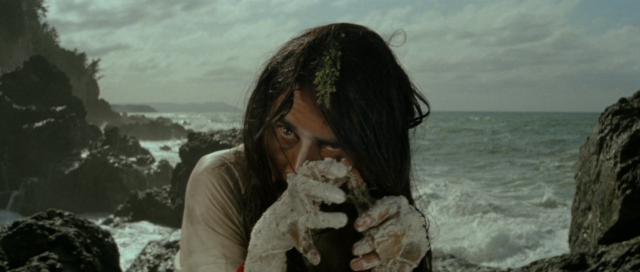
Teruo Ishii’s Horrors of Malformed Men is one of six wild and unpredictable films in Japan Society series (photo © 1969 Toei Co., Ltd)
TAISHO ROMAN: FEVER DREAMS OF THE GREAT RECTITUDE
Japan Society
333 East 47th St. at First Ave.
Friday, December 15, and Saturday, December 16, $12-$16 per film
212-715-1258
japansociety.org
“Taisho is the best,” legendary Japanese filmmaker Seijun Suzuki once said. I can’t disagree.
Japan Society is celebrating the Western-influenced Taisho period, which followed the Meiji and ran from 1912 to 1926, during the reign of the country’s 123rd emperor, Yoshihito, with the film series “Taisho Roman: Fever Dreams of the Great Rectitude.” As a general rule, I am always attracted to the most unusual, bizarre, and strange films of festivals, the kind most likely to be shown at midnight screenings. In the case of “Taisho Roman,” however, that would essentially mean all six movies.
The festival kicks into high gear Friday night with a half dozen wide-ranging works, beginning with a double feature at 6:00 of Teinosuke Kinugasa’s hourlong 1926 silent classic, A Page of Madness (the 1970s New Sound version of this previously lost silent film), about a man who takes a custodial job in a mental institution where his ailing wife is being treated, partly inspired by the director having met the emperor, and Shuji Terayama’s 1979 forty-minute Grass Labyrinth, a psychosexual memory tale based on the novel by Kyoka Izumi. At 9:00, Japan Society screens a thirty-fifth-anniversary 35mm print of Toshio Matsumoto’s 1988 Dogra Magra, a surreal drama of memory and identity from a story by detective novelist Kyusaku Yumeno.
On Saturday at 3:00, it’s time for Teruo Ishii’s wild and unpredictable 1969 Horrors of Malformed Men, in which the protagonist escapes an asylum and tries to figure out who he is. At 5:00 is the international premiere of Suzuki’s 1980 genre-defying Zigeunerweisen, a unique adaptation of Hyakken Uchida’s Disk of Sarasate and Yamataka-boshi. The series concludes at 8:00 with a thirty-fifth-anniversary screening of Akio Jissoji’s 1988 Tokyo: The Last Megalopolis, based on the first three volumes of Hiroshi Aramata’s 1980s epic Teito Monogatari, an occult reimagining of the history of Tokyo.
“Exploring one of Japan’s most fascinating periods, ‘Taisho Roman’ pulls from some of Japanese literature’s most occult and imaginative texts — writings that to this day remain untranslated,” Japan Society film programmer and series curator Alexander Fee said in a statement. “Featuring films that range from exploitation to avant-garde and angura, this series collects both well-known and forgotten works that envisage differing realities of the often-mythologized era of Japanese history.”
You might as well just movie in to Japan Society for a few days so you can also check out the current exhibition “Out of Bounds: Japanese Women Artists in Fluxus.”
[Mark Rifkin is a Brooklyn-born, Manhattan-based writer and editor; you can follow him on Substack here.]